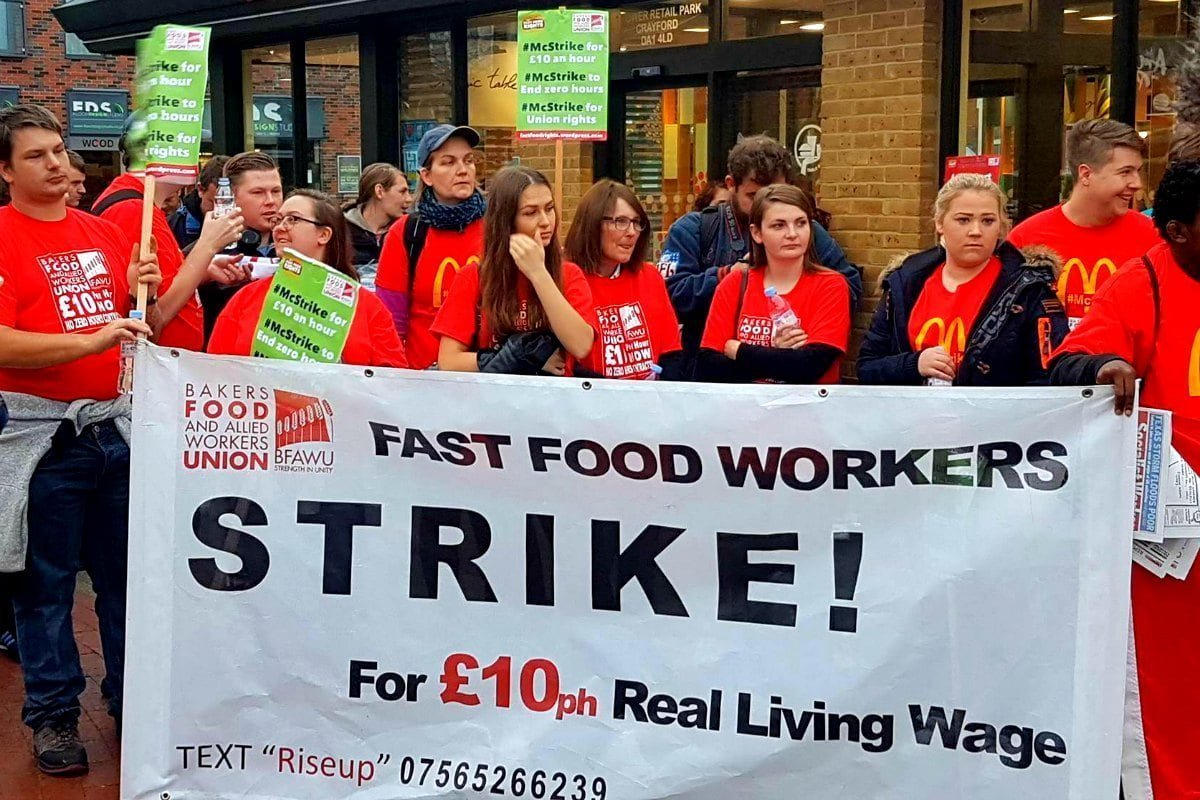Inspiring strike action and the prospect of a Corbyn Labour government lifted spirits at the recent BFAWU conference.
The 100th national conference of the Bakers Food and Allied Workers Union (BFAWU) took place in Southport from the 10-13th June, under the banner: “Conference 100…still work to do!”
The mood was positive, as around 185 delegates met to discuss and vote on motions put forward by branches from across the country. The motions covered a broad range of topics: from union policy and all things work related, to political questions – both parliamentary and local.
One of the motions carried, on the topic of lobbying the government for better mental health support, reflected the widespread mental health crisis we see today throughout Britain and many other capitalist countries.
Delegates spoke of their own personal experiences and how the stress of their jobs affects their lives outside of work to an increasing degree. One worker said that they felt employers were scared of their employees having mental health issues – just another example of the stigma that still affects the 1-in-4 people throughout the world who will suffer from these issues in their lifetime.
On the topic of the National Living Wage, BFAWU general secretary Ronnie Draper spoke of how businesses were taking away ‘extras’ such as double pay on Sundays in response to the introduction of the living wage, in an attempt to keep wage costs down. For workers who only have hours on Sundays, this means that their pay is effectively cut in half.
Draper also spoke of the unfairness of younger workers (those under 21-years-old) being paid less for the same amount of work. This focus on the problems faced by young workers came up often throughout the conference, with several young people announcing themselves as first time delegates or speakers when discussing motions, receiving rousing applause from the audience.
The conference was also visited by a number of other union speakers and supporters in solidarity. Paul Nowak, assistant general secretary of the TUC, and Labour leader Jeremy Corbyn both made appearances.
Nowak brought a message of solidarity on behalf of the TUC, speaking of the need to “fundamentally reshape our economy”. He also spoke of how huge companies such as Uber and Amazon used “21st century technology to deliver 19th century exploitation”.
BFAWU is officially affiliated to the Labour Party, and there was clear support amongst delegates and the union executive for Jeremy Corbyn and a Labour government.
Speaking at the opening of conference on the Sunday, Corbyn spoke of his commitment to the demand for a £10 minimum wage and an end to zero-hour contracts, and to end the exploitation of workers in food chains such as McDonald’s (who are represented by BFAWU).
BFAWU president Ian Hodson summed up the attitude of the whole conference best when he stated during the discussion that “we are probably the biggest supporters of Jeremy Corbyn”.
BFAWU leaders are right that there is still much more work to do in fighting for workers’ rights throughout the country, particularly in the precarious sectors represented by the union. The recent strikes by McDonald’s workers have shown the way forward in this struggle.
The self-proclaimed commitment to socialist ideas and the support for a Corbyn government seen at this centenary conference shows that there is a positive, determined, and militant mood amongst union members. The task now is to translate this mood into action.






